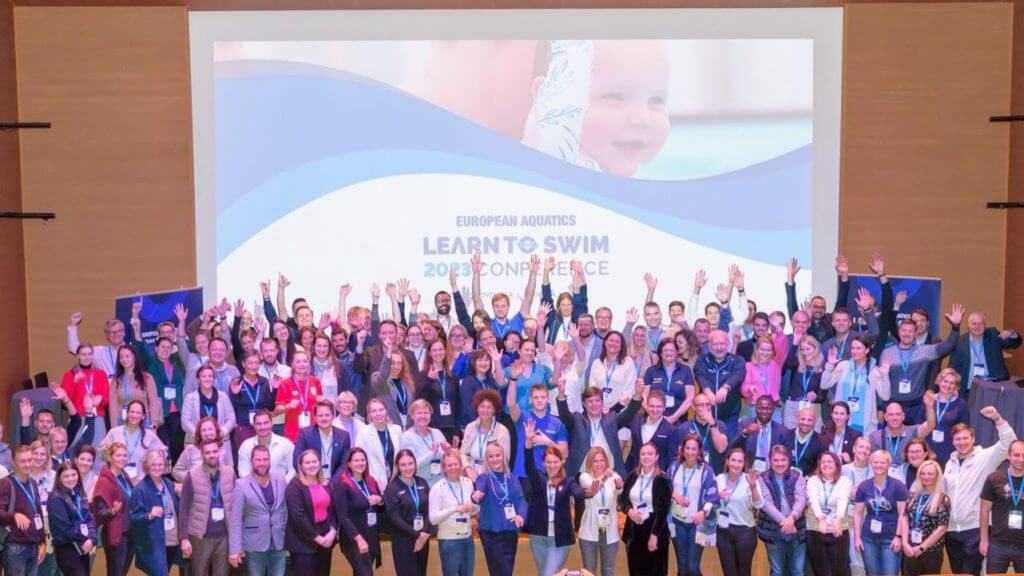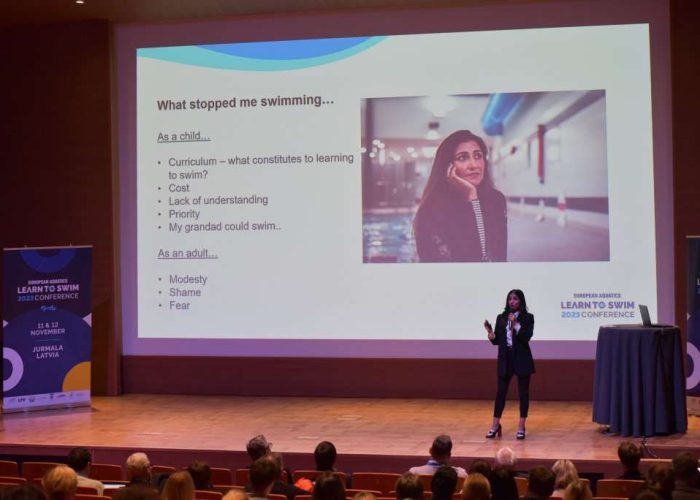European Aquatics Announces Two-Year Pilot Project At Inaugural Learn To Swim Conference

European Aquatics Announces Two-Year Pilot Project At Inaugural Learn To Swim Conference
European Aquatics has announced plans to roll out a two-year pilot project in the next step of its Learn to Swim (LTS) strategy.
The announcement came at the conclusion of the governing body’s inaugural Learn to Swim Conference which took place in Jurmala, Latvia, over the weekend.
It involved close to 200 delegates from 28 nations, including Olympians, academics, and experts from across the aquatic community as European Aquatics sets about developing the first Europe-wide standard for learning to swim.
Those present included Peter Mankoc whose career spanned five Olympics between 1996 and 2012, the Slovenian enjoying great success in the World and European short-course pools including a 100IM world record of 52.63 in 2001.
.jpg)
Peter Mankoc
He said: “You do not really enjoy the Olympics when you are an athlete. You do not have time to do that. You are there to do a job. But now that I am a coach, I try to teach my young athletes that the most important thing in sport is to enjoy, and to grow through sport.
“Life has ups and downs and swimming gives you the skills to deal with the hard stuff, to have resilience, to learn to take responsibility and realise that nothing is tough to a swimmer!”
Other speakers included Yusra Mardini, who fled the Syrian civil war on a journey fraught with danger as she helped save the lives of her fellow refugees by steering their dinghy through the Aegean Sea.
She then went on to compete at Rio 2016 and the Tokyo Olympics five years later.
Mardini said:
“When I was going through some very challenging times, swimming was always the home I could take with me everywhere.
“It helped me to deal with trauma. It gave me strength and to have hope. If I wasn’t a swimmer I’m not sure if I’d be brave enough to jump into the water and save other peoples’ lives.”
Journalist and broadcaster Summaya Mughal confronted cultural barriers by learning how to swim at the age of 28 in 2022 after taking on the challenge in recognition of the number of South Asian women who are unable to swim.
Her experiences led to an award-winning podcast ‘Brown Gal Can’t Swim,’ which underlined the importance of finding ways to encourage more adults, and those from currently excluded communities, to learn to swim.

Summaya Mughal: Picture courtesy: Kaspars Garda/European Aquatics
The swimming federations of Belgium, France and Portugal also presented their national Learn to Swim programmes which offered valuable insights into how different approaches can be used to secure similar goals.
Representatives from the federations of England, Wales and Scotland (UK development), Hungary, Sweden, Estonia and Slovenia shared their experiences, challenges and learnings from their own national learn to swim programmes.
As well as the presentations, delegates met in two breakout groups which addressed several topics ranging from safety, academic theory, technology and innovation.
The event concluded with details of the pilot project involving three member federations who’ll be approached to work with European Aquatics to:
- Evaluate and collect relevant information on a database
- Allow sharing of best practices and challenges
- Evaluate and collect relevant information on a database
- Produce a LTS Manual and certification system
- Raise public and political awareness on the topic
- Communicate the framework and results to stakeholders and the public
European Aquatics President Antonio Silva said:
“We are aware of the challenges of having so many differences within Europe, and it’s important to stress that we are just the start of a long journey.
“But with around 15 per cent of Europe’s population under the age of 14 and many countries having no established systems at the moment, European Aquatics has a great opportunity to build a sustainable system.
“As this conference has shown, there is a wealth of knowledge and experience in our national federations. By working together, we can ensure more people are taught to swim and feel safe in the water.”



